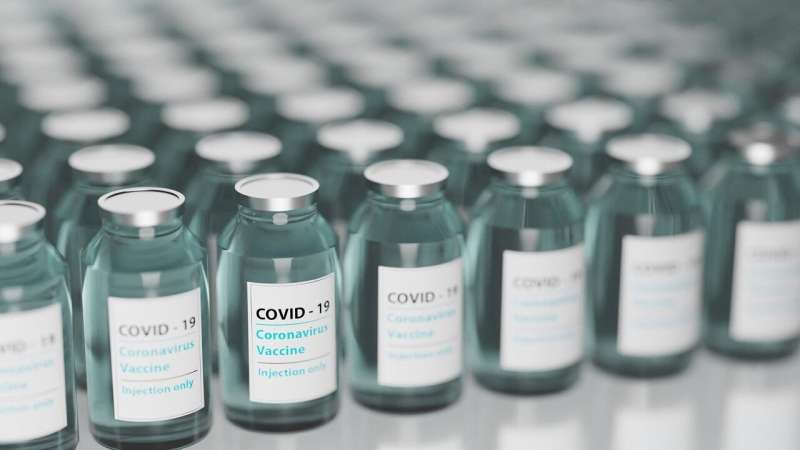
The COVID-19 Prevention Network (CoVPN), headquartered at Fred Hutchinson Cancer Center in Seattle, was instrumental in the rapid development of safe, effective and lifesaving COVID-19 vaccines during earlier phases of the pandemic.
Its vital work to expedite Phase 3 COVID-19 vaccine clinical trials also resulted in a highly collaborative and harmonized approach that can serve as a national and even international model for major research initiatives while also guiding responses to future public health emergencies.
That’s the overarching theme from a new study published Monday, Jan. 23, in JAMA Network Open.
“Our success, which depended entirely on the investments into HIV vaccine research, can be replicated for other important research initiatives and highlights the importance of investments that boost pandemic preparedness for years to come,” explained James G. Kublin, MD, MPH, executive director of CoVPN and senior and corresponding author of the study.
Additionally, he and his colleagues, including Alfredo Mena Lora, MD, assistant professor of medicine at the University of Illinois at Chicago, and co-first author Jessica Long, Ph.D., MPH, a postdoctoral fellow at the University of Washington Department of Medicine in Seattle, noted that the COVID-19 clinical trials produced a vast database of critical information that could help researchers answer pressing questions about this novel virus moving forward.
“The harmonization of data across trials is a new strategy that will set the standard for collaboration in future clinical trials,” said Mena Lora.
The authors detail how CoVPN was able to help secure authorized vaccines in less than a year by the National Institute of Allergy and Infectious Diseases at the National Institutes of Health as part of Operation Warp Speed. Its mission was, and continues to be, to support the rapid development of vaccines for the U.S. and global populations by coordinating and implementing Phase 3 trials for COVID-19 vaccine candidates.
CoVPN officials were able to leverage existing resources, including clinical and laboratory infrastructure, community partnerships and research expertise, to get clinical sites to quickly pivot to conduct the vaccine trials as soon as investigational products were ready for Phase 3 testing.
“The CoVPN approach drew on years of experience and infrastructure from partnering networks and institutions, which not only allowed for rapid rollout of the trials, but also contributed to broader representation of trial participants,” said Long.
Overall, CoVPN deployed five Phase 3 clinical trials involving more than 136,000 participants to test the safety and effectiveness of COVID-19 vaccines. While doing so, it implemented several innovative procedures that were essential to its ultimate success. These included:
- Harmonized study designs that were similar in relative size, number of endpoints and time to analysis.
- A model that accelerated vaccine development by allowing phases to occur in parallel rather than sequentially. For example, vaccine manufacturing and scale-up were greenlighted while the trials were ongoing in anticipation of meeting efficacy targets.
- Establishment of a single Data Safety Monitoring Board for review and oversight of all vaccine studies.
- Targeted outreach and enrollment efforts supported by an online screening registry to ensure broad and diverse representation among study participants. Extensive engagement was conducted with communities and community leaders to build and enhance trust in the science to help enroll more Black, Indigenous and people of color (BIPOC) volunteers who are historically underrepresented in clinical trials.
- A cross-platform approach that led to harmonization of data collection across trials and the ability to analyze data from all studies.
“This unique, cross-platform concept allowed for sharing of data from all of the studies and helped bridge gaps in understanding so we could better answer key research questions and guide policy decisions,” explained Kublin, who’s also a principal staff scientist at Fred Hutch.
Larry Corey, MD, an internationally renowned expert in vaccine development, and principal co-investigator of CoVPN, believes the success of COVID-19 clinical trials should be thought of as an important model for developing vaccines for significant infectious diseases globally.
“Harmonizing study design, enrollment, clinical endpoints and methods for follow-up could very well become best practices that shape the future landscape of major research initiatives and pandemic responses,” he said.
Kublin and colleagues regard the vast database from more than 130,000 trial participants, including over 2,500 with documented COVID-19 cases, as a “treasure trove” of data that could help unlock mysteries about the virus. For example, they noted that the pooled data from five trials can help address specific questions such as:
- How effective are vaccines for at-risk groups?
- Can vaccines have an impact on long COVID?
- Are safety, immunogenicity and vaccine efficacy different in special populations, such as people living with HIV?
- What impact do chronic health conditions have on vaccine efficacy or protection duration?
- What are the impacts of variants on both the population at large and within special communities?
Additional CoVPN publications planned for the months ahead will address many of these topics. Researchers who have ideas for further investigation and want to collaborate with CoVPN can find more information here.
More information:
Alfredo J. Mena Lora et al, Rapid Development of an Integrated Network Infrastructure to Conduct Phase 3 COVID-19 Vaccine Trials, JAMA Network Open (2023). DOI: 10.1001/jamanetworkopen.2022.51974
Journal information:
JAMA Network Open
Source: Read Full Article
